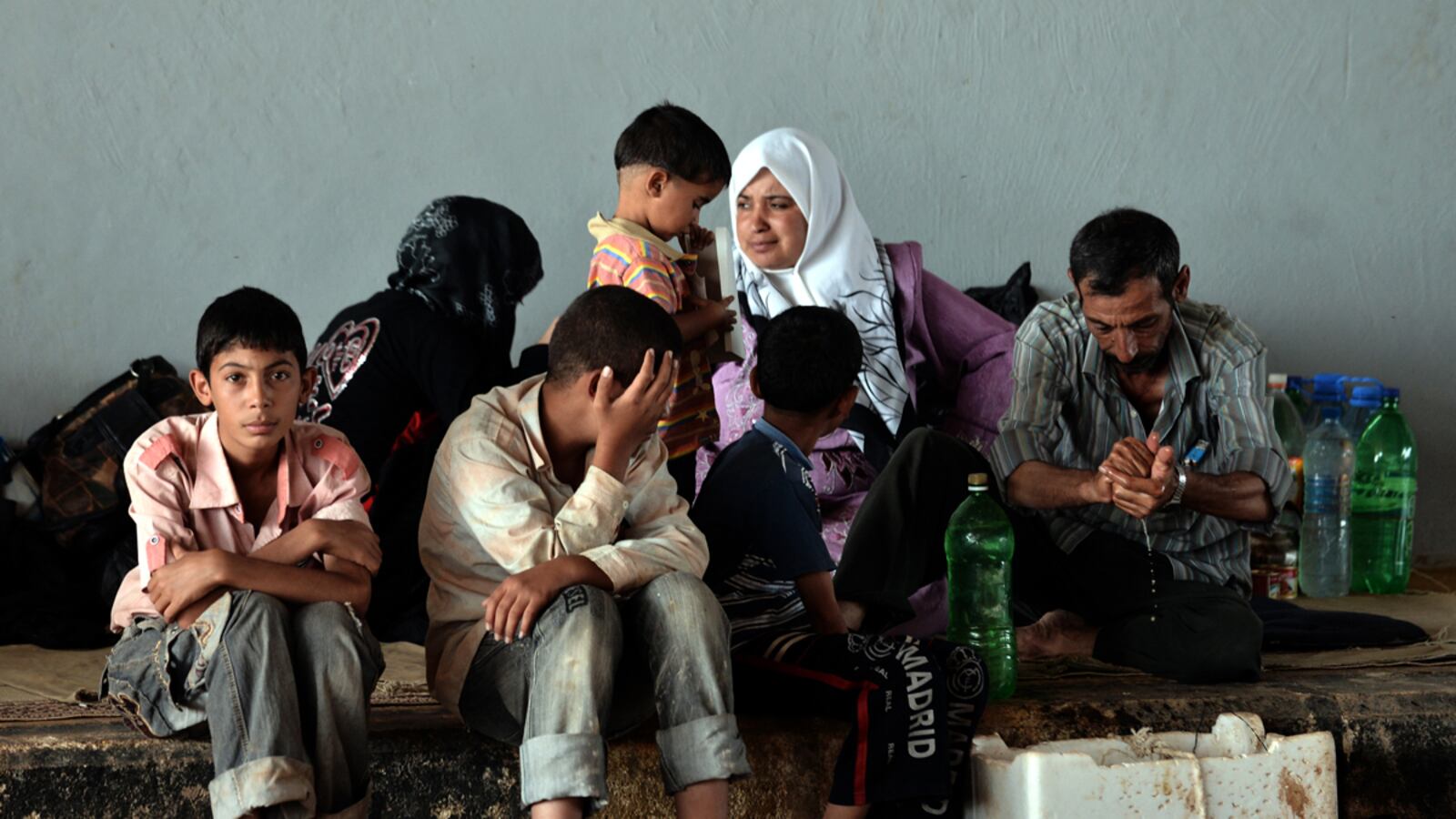At the Turkish border crossing of Cilvegözü on Monday, Bilaal Aude said he’d just crossed into Turkey as a visitor, with a stamped passport in hand. Yet his countrymen who had tried to take shelter in Turkey as refugees, he said, were stuck on the other side. After fleeing the spiraling violence in Syria, they arrived at the border, where Turkish authorities told them they’d have to wait in Syria. They were gathered by the hundreds, Aude said, under tents provided by rebel soldiers across the way. “They’re in a rough situation, sitting over there,” he said.
In recent weeks, as opposition forces have continued their push to oust Syrian President Bashar al-Assad, the regime’s crackdown has reached new heights, wreaking havoc on rebels and civilians alike. As a result, the number of refugees pouring across Syria’s borders has spiked. Last week the United Nations announced that more than 200,000 Syrians had become refugees due to the conflict. Turkey has taken in more than any nation—and its decision to close the border to them last night has caused an international stir.
The move reportedly left more than 7,000 people stranded in Syria. Yet Suphian Altan, a spokesman for the Turkish foreign ministry, which runs the camps, said the closure would only be temporary. The border, he said, along with newly constructed refugee camps, would be open again to refugees in a matter of days.
The closure may have as much to do with logistics as it does with sending a message. In Ankara on Monday, Ahmet Davutoglu, the Turkish foreign minister, used a press conference to make a call for more international support. “We will emphasize that this burden now needs to be shared by the whole international community,” he said, “not just by Syria's neighbors.”
Analysts say Turkey has been trying to sell its allies—especially the United States—on the merits of establishing a buffer zone on Syrian soil for some time. Davutgolu himself said one was needed to shelter Syrian refugees in remarks last week. Some observers believe the Turkish government is now using the recent refugee surge to hammer home its point. “Closing off of the border was a way of trying to hasten the process,” says one source who has been advising the U.S. government on the conflict in Syria.

“Turkey really wants to see a buffer zone right now on its borders, but that cannot happen unilaterally,” adds Nuh Yilmaz, a foreign-policy analyst based in Istanbul.
Turkey’s push may be paying off. After the Davutoglu press conference, French President Francois Hollande said on Monday that France and its allies were at work on “the initiative of buffer zones proposed by Turkey.”
“We are doing so in coordination with our closest partners,” he added.
Turkey has long pushed the idea that hosting 100,000 refugees would be its tipping point. With the magic number approaching fast, the government is raising the alarm. “It's quite possible that we will get to this 100,000 within days or weeks. Maybe then we can make it clear to the international community that this needs to be taken more seriously,” a Turkish government official told The Daily Beast, speaking on condition of anonymity because he wasn’t authorized to speak on the subject.
Yet like their decision to close the border, Turkish officials appear to have created that threshold, at least in part, with an eye on international concerns. “We set the number at 100,000 to make it clear that after that point the international community will have to start working with us on what to do about this situation,” the government official said. “We have to set limits.”
Yilmaz notes that the number seems to have little practical weight: “I think Turkey has the capacity for more than that,” he says, adding that that Turkey hosted 500,000 refugees during the Iraq war. And Altan, the foreign ministry spokesman, said six additional camps were currently in the works, which would expand Turkey’s capacity to host refugees by another 60,000 people. “We are going to continue to accept the refugees,” he said. “We will never turn them away in a humanitarian crisis.”
In the meantime, along the border, refugees continue to wait. Reached by phone inside Syria, one of the rebels assisting the refugees, who gave the nickname Abu Mohamed, said he and his fellow soldiers were helping the crowd with water and small portions of food. When asked why so many people have fled, he responded with dark humor. “Because they’re getting treated so well,” in Syria, he said.






